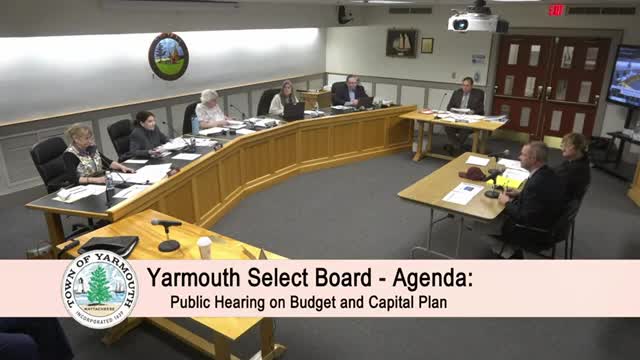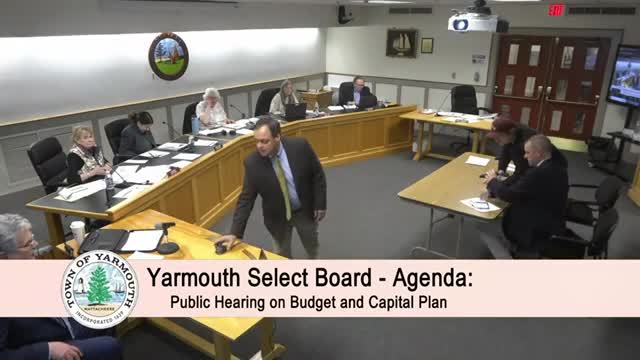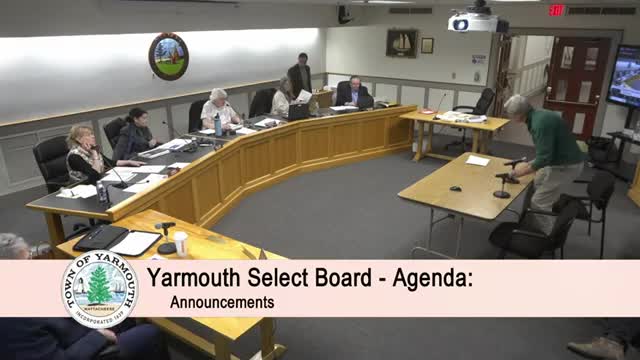Article not found
This article is no longer available. But don't worry—we've gathered other articles that discuss the same topic.

Cape Cod Chamber proposes local tourism-district assessment; Yarmouth among first towns eyed

Dennis-Yarmouth Regional budget: 4.496% operating increase; school committee uses reserves to lower local debt service

Cape Cod Tech presents $993,000 budget increase; leaders cite enrollment growth and contract costs

Finance committee: Yarmouth's FY26 budget "balanced"; capital plan highlights wastewater, water and fire staffing

